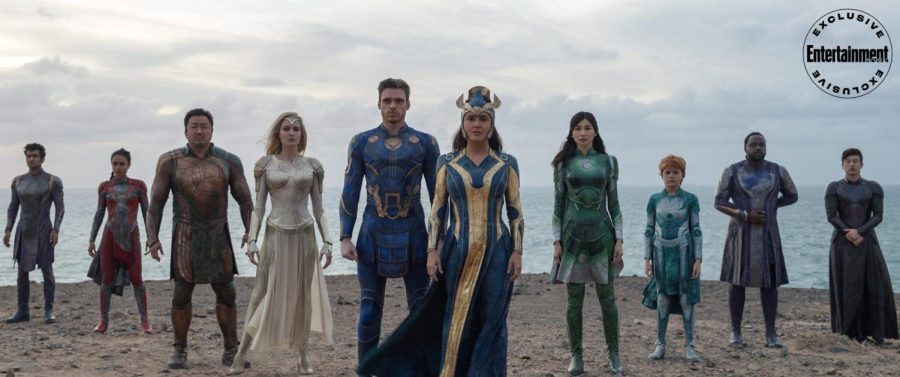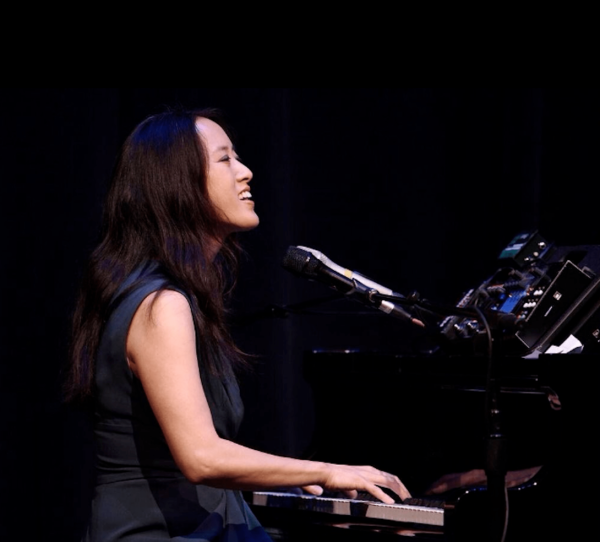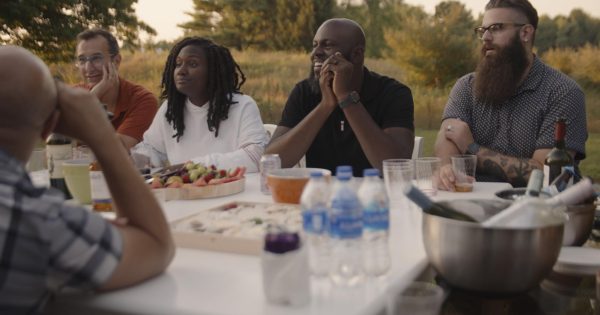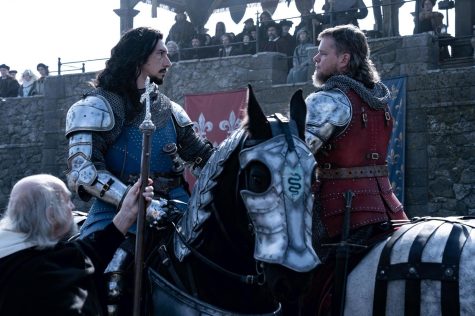“Eternals” is not your typical Marvel movie, and that’s mostly a good thing
“Eternals” offers a diverse cast of cosmically powerful, morally gray characters.
Unlike most superhero movies, “Eternals” is not a film that can be fully understood and appreciated after a single viewing. When I first watched “Eternals,” I mainly felt awed and overwhelmed: awed at the cinematography, the action sequences, the worldbuilding, the plot twists. Overwhelmed by all the characters and their dynamics, places, background information and deeper implications and messages of the story. “Eternals” is too jam-packed with material that’s unfamiliar to most casual Marvel fans; however, that is somehow its strength at the same time. By the end of the movie, fans have been successfully introduced to a brand-new realm of the Marvel Cinematic Universe that will likely have a deep impact on the stories told during Phase 4. They will have to trust that later installments will flesh out this realm and resolve any of their lingering confusion.
Many of the dozen or so characters which compose this new realm feel fascinatingly otherworldly — which is appropriate, since they’re not from Earth — and yet immediately relatable. Unfortunately, the two main characters, Sersi and Ikaris, are quite bland. Sersi is supposed to care deeply about humanity, and Ikaris is supposed to care deeply about Sersi. But the long, detailed flashback sequences of Sersi spending time with ancient peoples and Ikaris spending time with Sersi are unable to completely convince the audience that these characters actually care about anything. They just feel like what they are: synthetic beings. The much-publicized sex scene between Sersi and Ikaris was the most boring and unnecessary part of the movie. Ikaris eventually reveals a hidden side to his character and becomes more interesting, but Sersi never lives up to her potential.
Unexpectedly, a few of the side characters with the least amount of screen time steal the show: Makkari, played by deaf actress Lauren Ridloff, runs faster than the speed of sound and has a penchant for collecting artifacts throughout human history. Druig, played by Irish actor Barry Keoghan, is a leather-jacketed mind-controller who picks fights with just about everyone but unabashedly flirts with Makkari whenever he gets the chance. Gilgamesh, played by South Korean-American actor Don Lee, loyally protects his fellow Eternal Thena (played by Angelina Jolie) for centuries at the risk to his own life. If or when “Eternals” gets a sequel movie and/or Disney+ television show, these fascinating side characters with so much unexplored and unfulfilled potential should become the main characters.
The complex interactions of the Eternals with each other, humans and their god, Arishem, ultimately prevent “Eternals” from being mindless entertainment. The film examines love and religion as motivating forces for both good and evil and wrestles with the tension between free will and fate. The movie raises plenty of difficult questions for Christians: do we truly know what God is asking of us? Should we always blindly trust him or should we question him? What if our faith asks us to do something that conflicts with our own sense of rightness and wrongness? If God is omnipotent, why is evil still allowed to flourish?
After the Eternals manage to successfully rebel against Arishem, Sersi doesn’t seem triumphant at all. Instead, she admits that she sometimes wonders if they did the right thing. With the possible exceptions of “Avengers: Age of Ultron,” “Captain America: Civil War” and “WandaVision,” there’s never been a MCU installment featuring such morally gray protagonists. Although this may be disconcerting to viewers accustomed to conflicts between standard black-and-white villains and heroes, it’s refreshing as well. More than any other Marvel movie, “Eternals” has characters that reflect the diversity and complexity of their audience and their audience’s world. Ultimately, this is at the heart of what makes the story feel alarmingly, yet also tantalizingly and beautifully, real.









